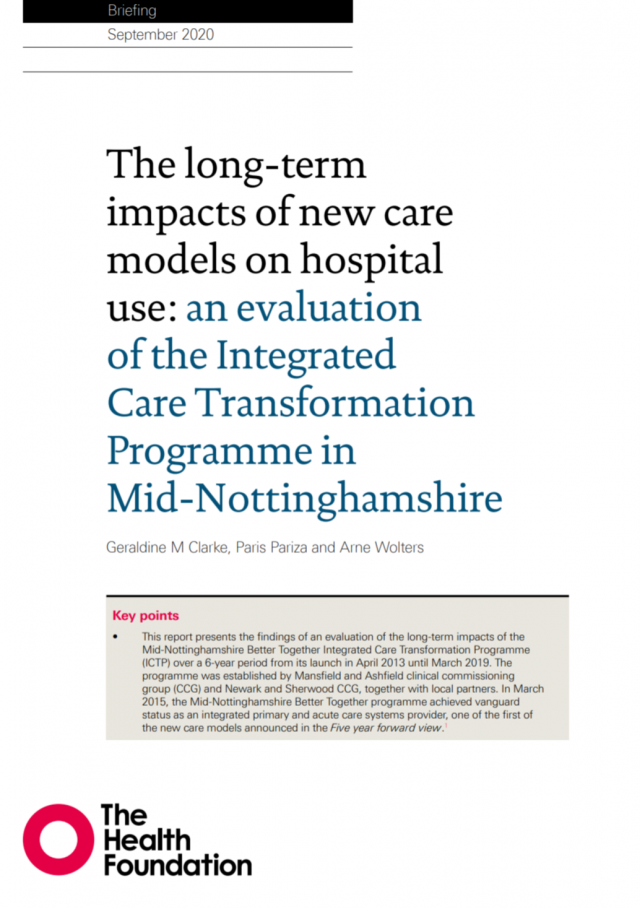The long-term impacts of new care models on hospital use An evaluation of the Integrated Care Transformation Programme in Mid-Nottinghamshire
September 2020

Key points
-
The briefing examines the impact of Mid-Nottinghamshire's Integrated Care Transformation Programme initiatives on hospital use for people aged over 18 years and registered with a GP practice in the region. It covers a 6-year period from the start of the initiatives in April 2013.
-
The analysis found that it took between 2 and 6 years before lower rates of hospital utilisation started emerging. By year 6 (2018-19) there were 4.3% fewer A&E visits and 6.7% fewer emergency admissions per 10,000 people per month compared with a carefully selected comparison area.
-
Evidence from shorter term evaluations of integrated care initiatives is often mixed. Our analysis shows it is important to be realistic about how long it takes to see results. Early assessment of impact risks erroneous conclusions that may lead policymakers to question or abandon potentially effective initiatives.
In this briefing, the Improvement Analytics Unit – a partnership between the Health Foundation and NHS England and NHS Improvement – has found evidence that integrated care programmes have the potential to reduce hospital utilisation and that the best results are delivered when new ways of working start to become embedded.
It is important that the analysis was able to look at the impact of the programme over such a long time. Integrated care programmes usually aim to reduce hospital admissions, however previous evaluations were not able to demonstrate whether reductions in hospital use might begin to materialise over a longer period. This briefing provides promising evidence that integrated care programmes have the potential to reduce hospital use over the longer term, even if there are increases in the short-term.
The briefing also underlines the importance of ongoing evaluation when implementing new ways of delivering care. Having a mechanism for robust evaluation in place is essential for continuous learning, so that necessary adjustments can be made to new programmes as they are delivered, and lessons learnt can be used to inform future policy decisions.
The Improvement Analytics Unit used data from similar GP practices elsewhere in England to construct a synthetic Mid-Nottinghamshire where the Integrated Care Transformation Programme was not introduced and compared its performance to the real Mid-Nottinghamshire.
You can read more detail about the results and the methods used in the accompanying technical appendix and statistical analysis plan.
Cite this publication
Further reading
Work with us
We look for talented and passionate individuals as everyone at the Health Foundation has an important role to play.
View current vacanciesThe Q community
Q is an initiative connecting people with improvement expertise across the UK.
Find out more


